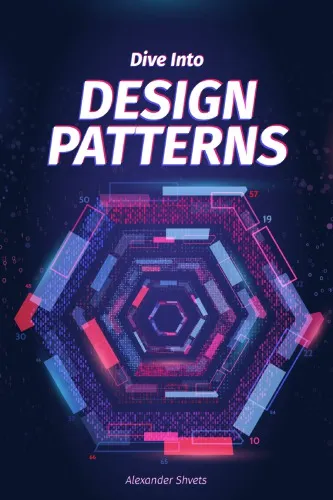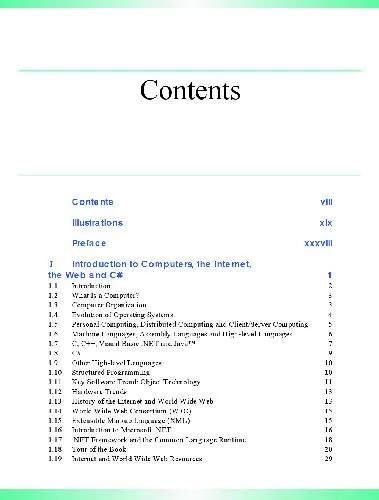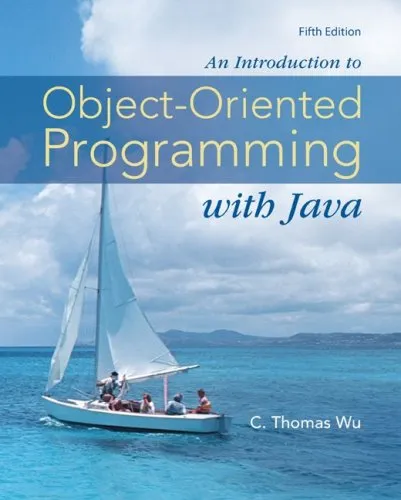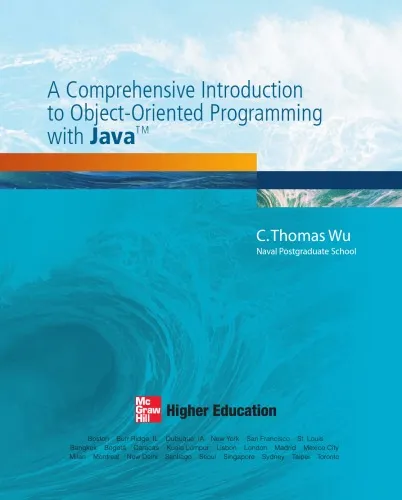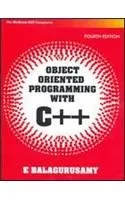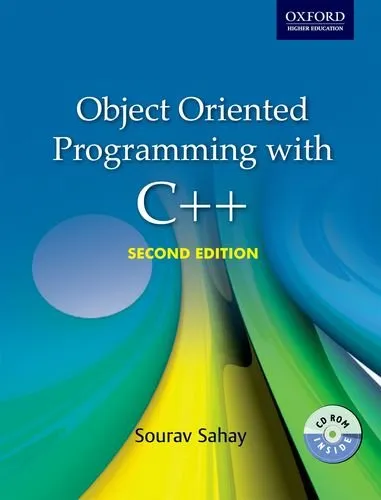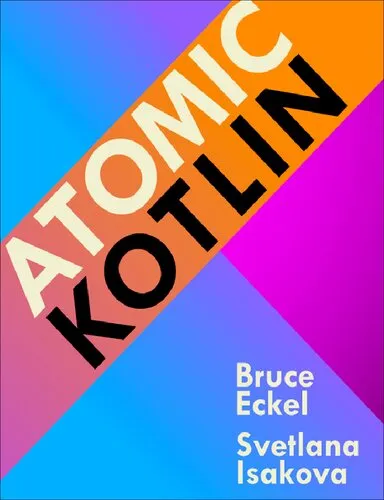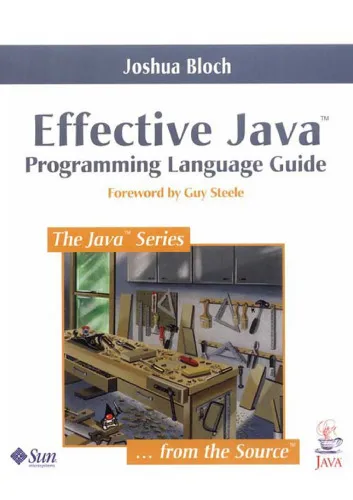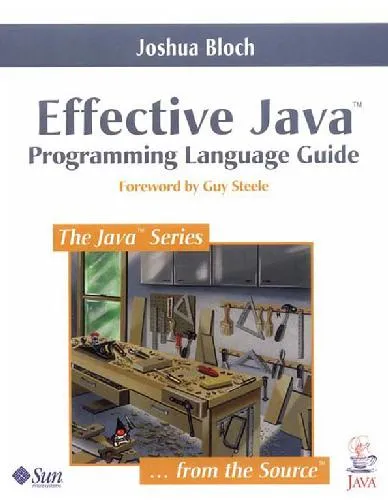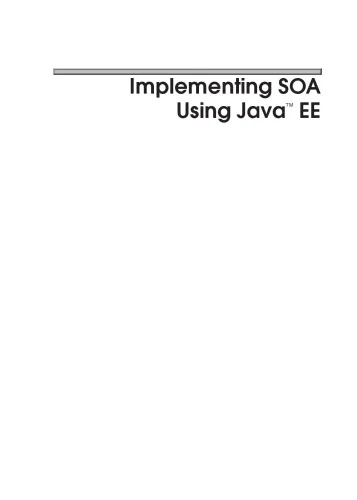Object-Oriented Programming with ANSI-C
4.0
Reviews from our users

You Can Ask your questions from this book's AI after Login
Each download or ask from book AI costs 2 points. To earn more free points, please visit the Points Guide Page and complete some valuable actions.Related Refrences:
Introduction to "Object-Oriented Programming with ANSI-C"
"Object-Oriented Programming with ANSI-C" is an innovative exploration into the realm of object-oriented programming (OOP) concepts, presented in an unconventional way—through the ANSI-C programming language. Written by Axel Schreiner, this book bridges the gap between procedural and object-oriented paradigms, showcasing how the foundational principles of OOP can be implemented using standard C. Designed for both students and seasoned developers alike, the book emphasizes problem-solving, design clarity, and efficient coding techniques.
Summary of the Book
The book serves as both a theoretical and practical guide, demystifying the idea that object-oriented programming is solely tied to languages like C++, Java, or Python. It systematically demonstrates the implementation of essential OOP constructs—including encapsulation, inheritance, and polymorphism—using pure ANSI-C. By leveraging structures, function pointers, and dynamic memory allocation, the text carefully walks you through the process of creating abstract data types, which are the building blocks of OOP.
Through a series of well-crafted examples and detailed explanations, the book highlights how C’s flexibility can be harnessed to mimic classes, objects, methods, and other OOP features. Each chapter emphasizes practical programming techniques while subtly embedding a deeper understanding of OOP design philosophy. Whether you are learning to extend your knowledge of C programming or transitioning into OOP from procedural programming, "Object-Oriented Programming with ANSI-C" provides a structured path to mastering these concepts.
Unlike traditional textbooks, this book emphasizes a ground-up approach to OOP. It begins with a focus on essential concepts and gradually delves into advanced topics such as class hierarchies and polymorphism. Readers will also explore the challenges and limitations of implementing OOP in C, making this an invaluable resource that offers insights into both the strengths and constraints of the language.
Key Takeaways
- Learn how object-oriented principles such as encapsulation, inheritance, and polymorphism can be achieved using ANSI-C.
- Discover how to create reusable and modular code structures using advanced C techniques.
- Understand the contrasts between procedural and object-oriented programming, with real-world use cases illustrating the benefits of each.
- Master the use of pointers, structures, and dynamic memory allocation as tools for implementing OOP.
- Gain practical experience with coding examples that demonstrate how to translate high-level OOP concepts into efficient C programs.
- Explore the boundaries of ANSI-C and understand where its capabilities align or diverge from modern OOP-focused languages.
Famous Quotes from the Book
"The principles of object-oriented programming transcend the languages we use to implement them."
"ANSI-C is not inherently object-oriented, but with enough creativity, you can teach it the principles of good design."
"Good programming is not about writing clever code; it’s about writing code that others can understand and extend."
Why This Book Matters
"Object-Oriented Programming with ANSI-C" is a thought-provoking study of programming paradigms, offering a fresh perspective on how classical C can be extended to suit modern software development practices. As the programming landscape continues to evolve, understanding the core principles of OOP remains a fundamental skill. This book matters because it demonstrates how those principles are innate to logical design rather than being bound to specific programming languages.
For developers proficient in C, this book is an opportunity to rethink the way they approach code structure and organization. For students of computer science, it serves as a stepping stone to understanding OOP concepts before transitioning to higher-level languages. Moreover, it highlights the simplicity, power, and limitations of C, challenging readers to innovate and push the boundaries of their technical skills.
What sets this book apart is its methodical approach to merging theoretical knowledge with practical application. Schreiner acknowledges the complexities and nuances of implementing OOP in C but uses those challenges as teaching moments, encouraging readers to think critically and problem-solve effectively. This combination of rich technical depth and practical insights makes "Object-Oriented Programming with ANSI-C" a timeless resource in the field of programming education.
Free Direct Download
You Can Download this book after Login
Accessing books through legal platforms and public libraries not only supports the rights of authors and publishers but also contributes to the sustainability of reading culture. Before downloading, please take a moment to consider these options.
Find this book on other platforms:
WorldCat helps you find books in libraries worldwide.
See ratings, reviews, and discussions on Goodreads.
Find and buy rare or used books on AbeBooks.
1395
بازدید4.0
امتیاز0
نظر98%
رضایتReviews:
4.0
Based on 0 users review
Questions & Answers
Ask questions about this book or help others by answering
No questions yet. Be the first to ask!
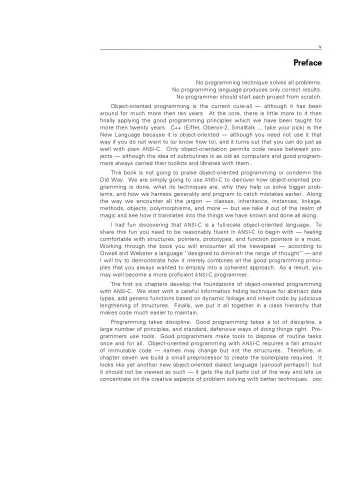
![ActionScript 3.0 design patterns: [object-oriented programming techniques]](https://s3.refhub.ir/images/thumb/ActionScript_3_0_design_patterns___object-ori_4491.webp)
